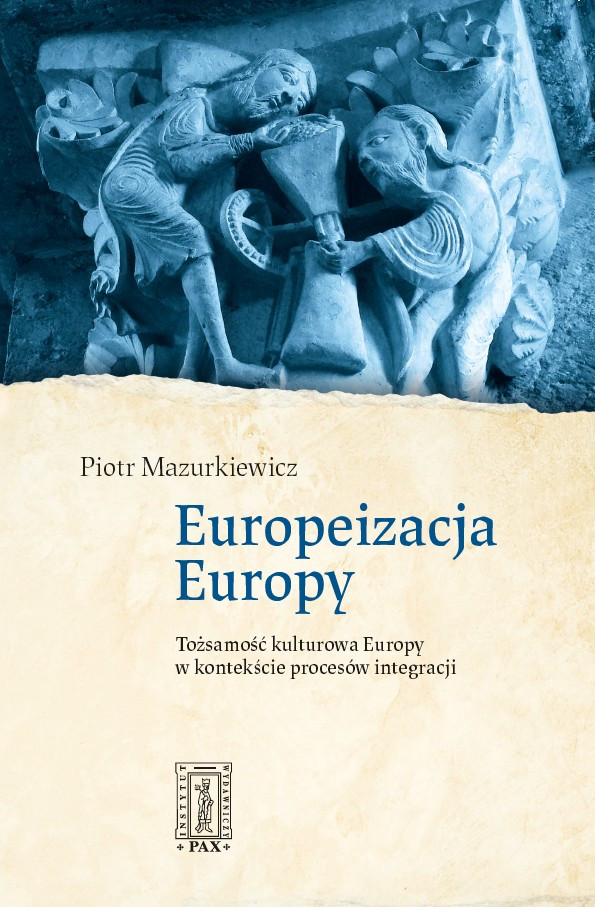
 2025/12/17
2025/12/17
 2023/06/29
Społeczeństwo
2023/06/29
Społeczeństwo

Can social science be Catholic or religious? It is worthy to run business in a moral way? What characteristics should be fostered by a contemporary leader? What are the threats of artificial intelligence for business? - Kamil Sulej talks with Prof Daniel K Finn, editor of the book Business Ethics and Catholic Social Thought.
What was the main goal of creating the release under your supervision?
This volume arose out of the “True Wealth of Nations” project at the Institute for Advanced Catholic Studies in Los Angeles. The aim of the volume is to broaden business ethics because so much attention is, understandably, invested in questions about how managers should make daily decisions internal to the firm. We wanted to investigate issues for business that arise from the broader teachings of the modern popes, especially Pope St. John Paul II, about the larger economy and how individual businesses fit into that world.
What features of character should a contemporary leader represent?
I am reminded of the automobile bumper sticker: “He who dies with the most toys wins.” Too many people are unreflective about their purpose in life, and too many think it can be anything they like. But as St. Augustine cautioned, “Everyone wants to be happy, even those living lives that will not make them so.” There are many features of strong moral character for leaders today, but one stressed in this volume is often overlooked: concern for the common good. The chapter by Michael Naughton and Kenneth Goodpaster makes clear that institutions – governments, privately owned businesses, and NGOs – need to attend to the common good, of their own organization and of the broader society without which neither organizations nor individuals can thrive.
In what way does the catholic social science help leading companies?
For me, no social science is Catholic or religious, but some ways of doing social science (and some “schools” of social scientists) fit better with Catholic and religious commitments. Economist Andrew Yuengert argues persuasively in this book that business leaders make a mistake when they rely heavily on “management science,” an approach that largely ignores the multitude of daily business decisions that require practical reason (what classically was called “prudence”). Acknowledging that these are as much art as science, and that they require a combination of descriptive analysis and moral commitment, allows us to see that business decisions that real managers make every day are not simply “technical.” A Catholic view of business brings the moral issues into the foreground.
The contemporary world is quite hedonistic. How could doing business in a moral way change it?
One creative way to resist the hedonism and shortsighted stress in consumer spending is to ask whether the firm is producing “good goods.” David Cloutier’s chapter creatively encourages business leaders to reflect on many of the assumptions behind contemporary marketing and on options for meaningful production of both goods and services.
What are the main obstacles of managing businesses acording to high moral standards?
Most business leaders point to the pressure to produce profits for the owners of the business as the primary obstacle to moral leadership. But the papal tradition has been clear that business – like every other aspect of life – has a higher purpose than narrowly self-interested action. A CEO here in Minnesota compares profit for a firm to food for a person. It’s essential, but it’s not the purpose of existence. For example, Pope St. John Paul II taught that providing good employment is required for the moral legitimacy of a business firm.
What are the challenges concerning business activity? What is the future perspective?
Among the many challenges facing business today is artificial intelligence. It will facilitate many good developments, but its dangers are many. Democracy is already threatened by the ease of producing “fake news” that so many take to be true. Businesses will be tempted to cut moral corners by employing AI and will face the threat of unprincipled competitors employing AI to undermine the reputation and steal the research of firms resisting those temptations. Businesses frequently resist government regulation, but even the leaders of the firms creating AI have advocated national and international regulations to prevent the inevitable abuses that will otherwise arise.
Is business ethics only a theoretical notion or is it based on practice and taking actions?
In ethics, ideas arise out of virtuous action and in turn help to encourage it. Consider trust, the foundation for any well-functioning organization. Pope Benedict XVI taught that “reciprocity” is key. This is an interaction that begins with a free gift (you hold the door for a stranger when their arms are full) but entails a subsequent expectation: that the stranger will do the same for you or others in the future. He might not, but if he does, there is reciprocity, and we grow to trust each other. Reciprocity occurs within businesses and even between firms and their suppliers. Businesses that want to build trust among employees need to allow them time for gift – e.g., helping a colleague in another department even though that’s not part of the job description – so reciprocity can begin anew, and trust can widen and deepen. To use an economic metaphor, social capital is the stock of trust in an organization; reciprocity is the activity that generates a flow of trust that must be renewed every day. In the Catholic tradition, ethics is rooted in what truly helps people lead flourishing lives. Reciprocity should be one of the goals of every business.
Could you give any advice to all the readers of the Polish edition of your release?
Every nation is unique. In many ways, Poland differs from the United States, where this book arose. So Polish readers will need to decide whether and how the insights articulated here apply in the Polish context. And yet Catholic social teaching aims to speak truthfully to us all. Business leadership is, in Pope Francis’s words, “a noble vocation.” This is a moral challenge – that promises a flourishing life – for leaders in every nation.
Cooperation: Anna Kaszubowska
Daniel K. Finn – professor of economics and theology of at St. John’s University and the College of St. Benedict in Minnesota, USA. Recipient of the lifetime achievement award from both the Catholic Theological Society of America and the Association for Social Economics. Lecturer, speaker and author of books on ethics in economy and business.
/ab
